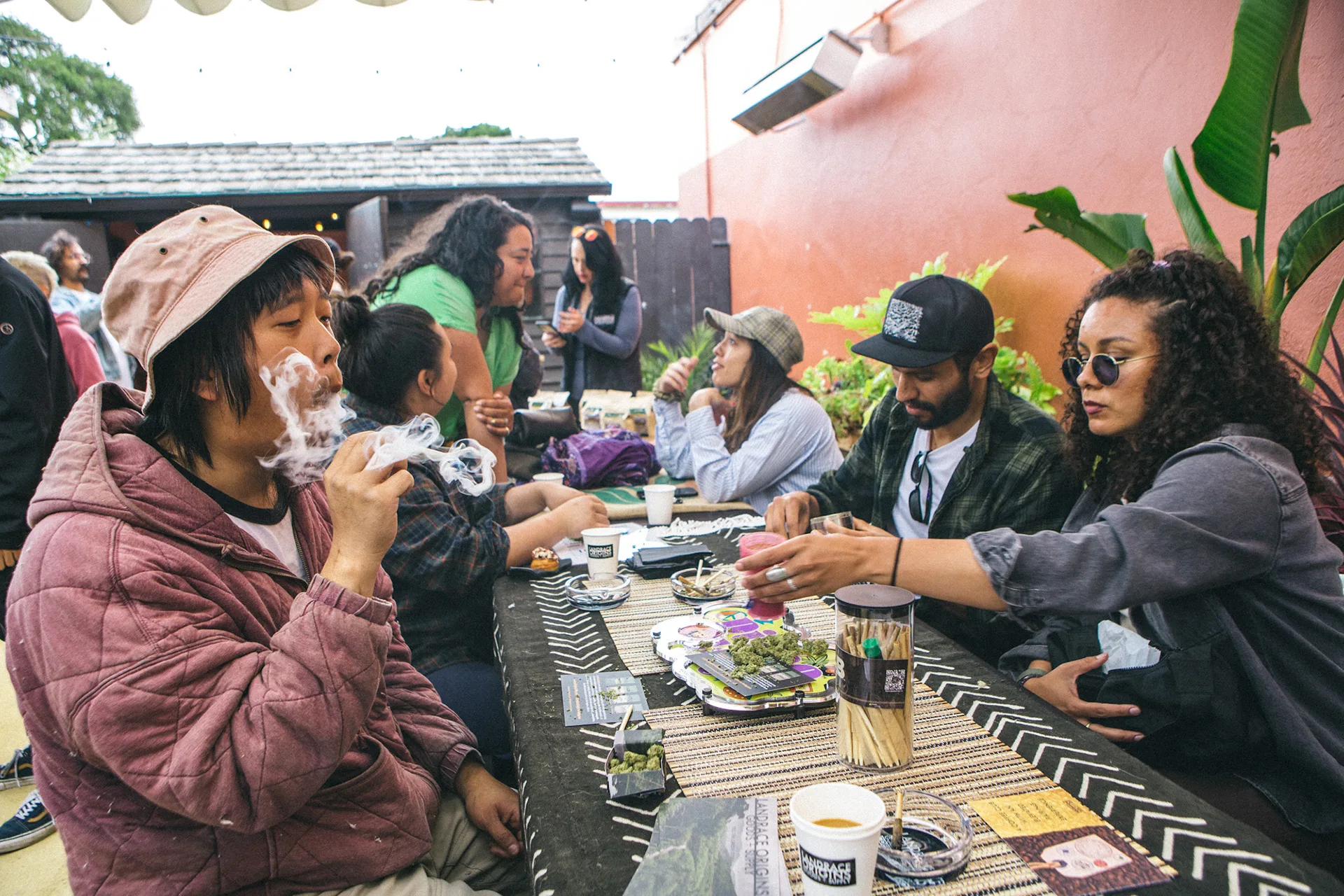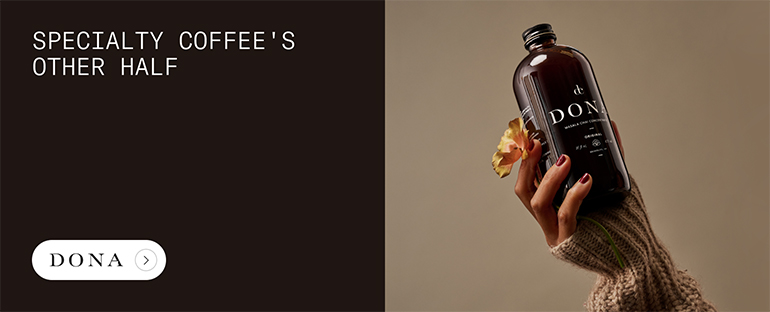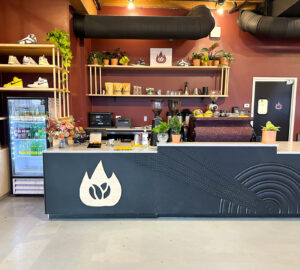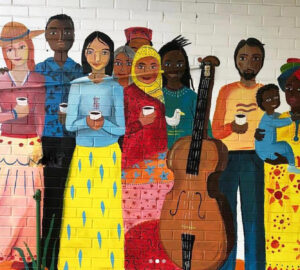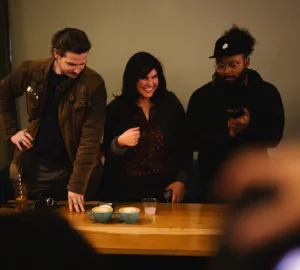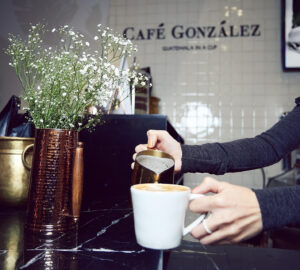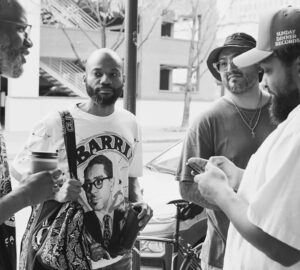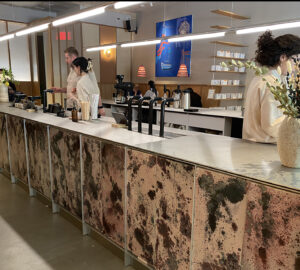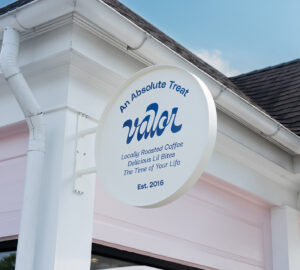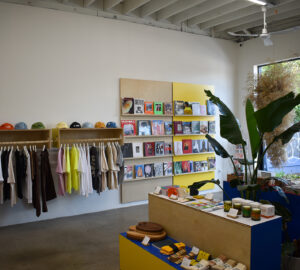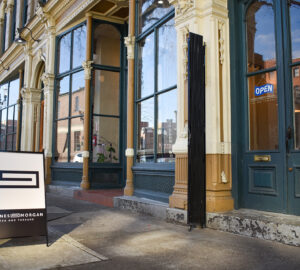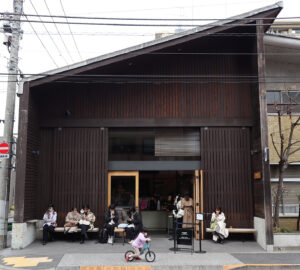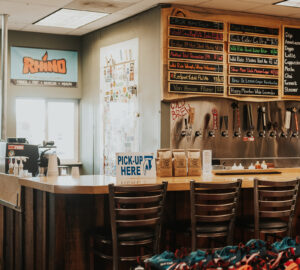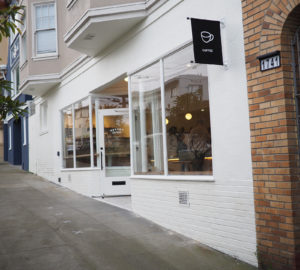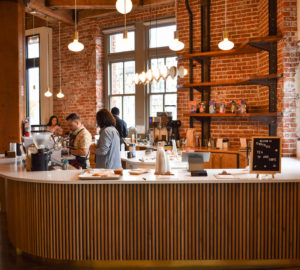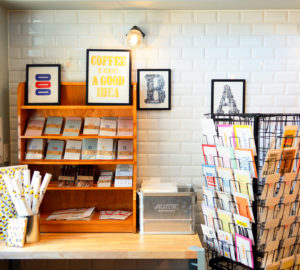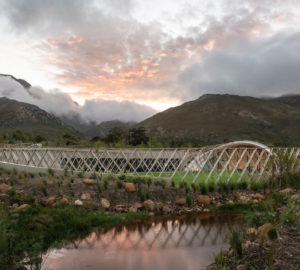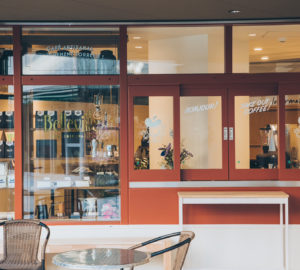When it comes to mixing plant-based drugs, cannabis and coffee is hard to beat. The caffeine tends to keep the high from getting too heavy or sleepy, and the cannabis can complement the wave of mental clarity with a fresh, often more whimsical perspective. The winning combination factors into the timeless allure of a “wake and bake” sesh, not to mention the smoke-friendly coffeeshop scene in Amsterdam. But for all the charm of enjoying Mary Jane with a cup of joe, shockingly few brands in the new world of legal cannabis have explored this pairing. An exciting exception to this rule is Landrace Origins Goods + Supply, a coffee and cannabis company that has gone all in on the combo and managed to pull it off without sacrificing the quality of either.
The Oakland, California-based company’s success lies in its simplicity. Rather than infusing coffee with cannabis extracts—something deceptively difficult to do well—Landrace offers roasted coffee that’s been sourced with cannabis in mind, paired alongside complementary pre-rolls. A Congolese coffee (from the southern shores of Lake Kivu) is paired with pre-rolled joint of Durban Poison, because of the way that flower’s “notes of vanilla, citrus, and cream draw out the notes of butter, brown sugar, and almond” in the coffee. This unique pairing is available to consumers in the Bay Area, and Landrace also ships whole beans nationally through their e-commerce site, with each bag labeled alongside recommended cannabis strains.
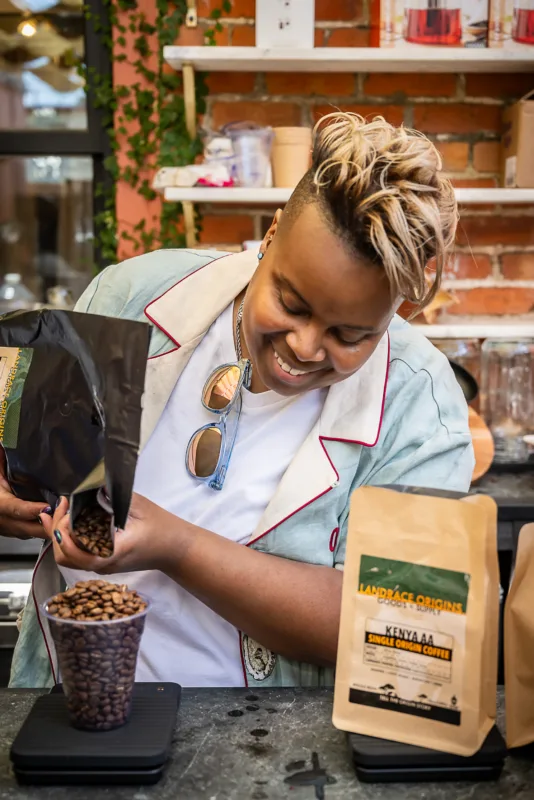
As always with the world of coffee—and much the same in cannabis—these pairings and flavors are just the start of the story. Founded in 2022 by Amber Senter, a longtime cannabis activist, Landrace Origins is rooted in a reverence for the people behind these plants we love. Throughout her work advocating for small businesses and social equity in cannabis, Senter saw firsthand the difficulties people had making a living in the cannabis industry. Landrace Origins is one of multiple brands within Senter’s MAKR House, a house of brands that employs queer, Black, and women-owned partners whenever possible throughout the supply chain. Those experiences make her interested in sharing the background of these beans beyond the mere country they come from, breaking down walls and stigmas along the way while offering invaluable perspective and education—and a delicious experience.
“When a shop says, ‘These are Ethiopian beans,’ I’m like, isn’t there more to that story? Imagine someone just describing a strain by saying, “this is American-grown weed,” says Senter. “It’s about so much more than the roaster. The people that grow it, process it, wash the beans—lots of hands touch those beans, and they’re all Black and Brown hands. And those stories just get lost.”
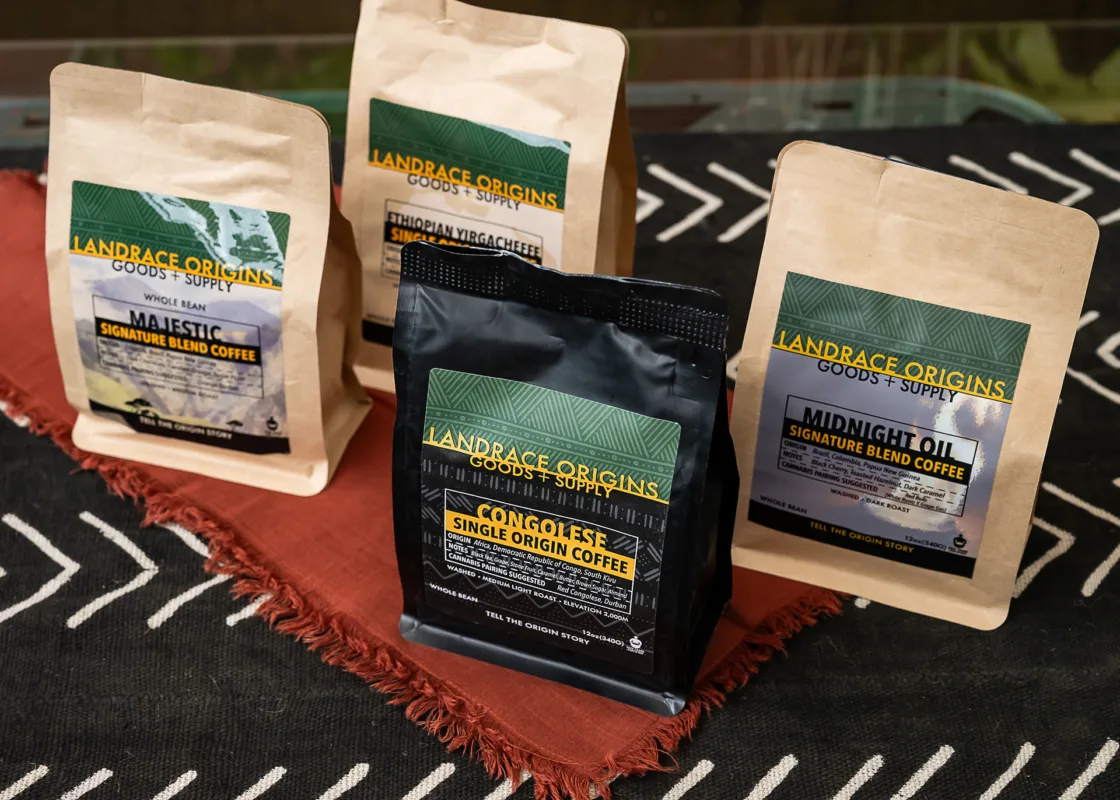
In the weed world, the farm is everything. One farmer’s Blue Dream may taste and feel totally different than another’s. Coffee lovers think the same way about the product they enjoy, with myriad factors impacting the experience of the final cup, from genetic variety to processing method to terroir and much more. The two crops have more in common than you might expect, although in cannabis the conversation centers around issues like cultivation methods, environment, LED lights vs. sungrown, and plant genetics, all of which impact the way a particular strain turns out. For Senter, it only makes sense to treat coffee as you would cannabis, speaking to the individual farms behind each.
In the hands of Landrace, a joint of Durban Poison is not just any Durban Poison—it’s the Durban Poison grown by the woman-owned Ghost Dance Ranch, an agricultural wonderland in the heart of the Mendocino forest. Meanwhile her DRC coffee beans were grown at Rebuild Women’s Hope, a woman-led Congolese coffee co-op that invests in the infrastructure of their community, and roasted by Senter’s cousin at Black Stallion Coffee Company in San Gabriel.
“It has its similarities, sourcing beans and sourcing cannabis. Small farmers are small farmers,” says Senter. “They have the same challenges of weather impacting crops, the costs of growing going up, a race to the bottom with prices. These folks are selling a pound of green beans for two dollars, even $1.50. And one latte in a nice SF cafe is $7? It’s messed up.”
Senter’s coffee education has complemented her work in cannabis, exposing her to an international supply chain—one that the US’s isolated cannabis market may grow to resemble one day—and a more developed palate.
“Before it was like, ‘this strain smells dank,’ and now I notice a whole harmony of notes. Same with coffee—I’m paying attention to how different beans have a different impact, just like with strains of cannabis.”
In addition to being one of the only brands to sell coffee and cannabis side by side in dispensaries, Landrace Origins fills a gap in cannabis experiences via in-person coffee and cannabis tastings. Today in the United States there are 24 states that have legalized cannabis, but America’s cannabis scene still lacks a classic Amsterdam-style coffeehouse where people can smoke flower and sip cappuccinos. Part of this is due to how legislation in most states makes it near impossible (or at least unaffordable) to open a consumption-friendly space that’s also zoned to serve food and beverages. The ones that do open are either bare bones or lavish, with full service restaurants (often owned by celebrities) offering more of a night club vibe.
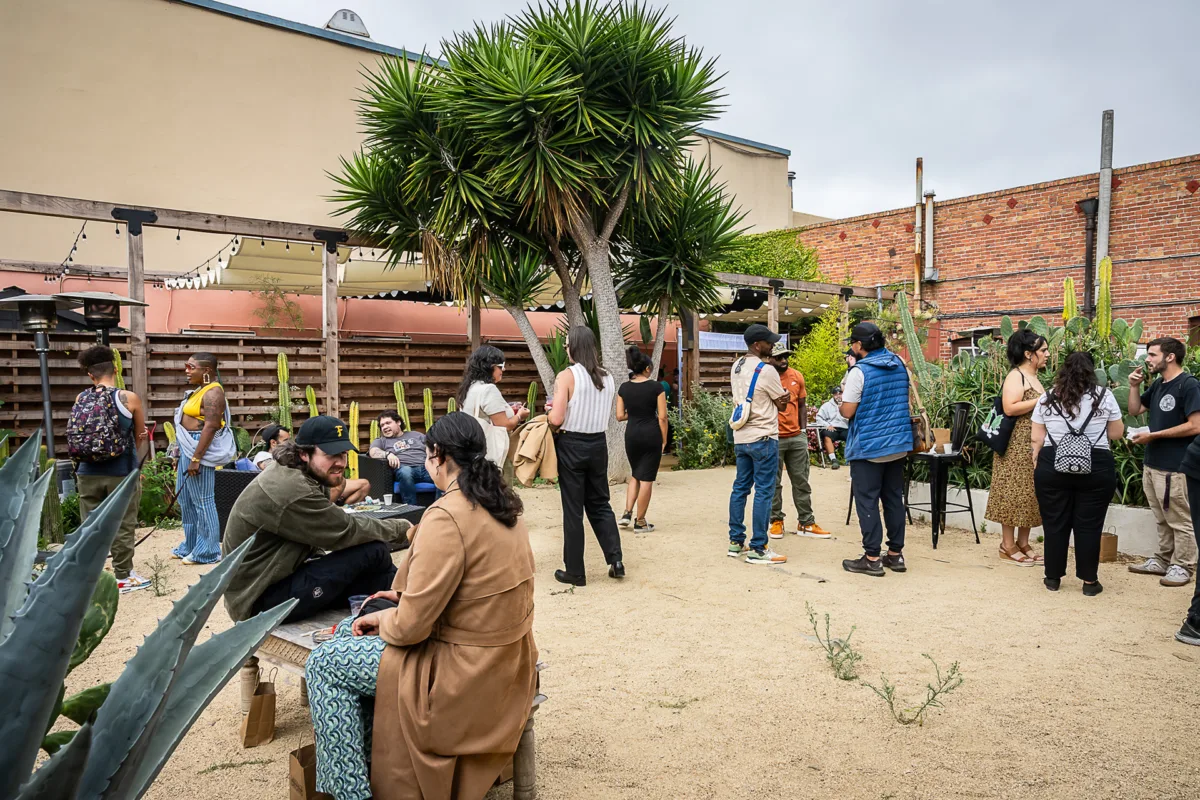
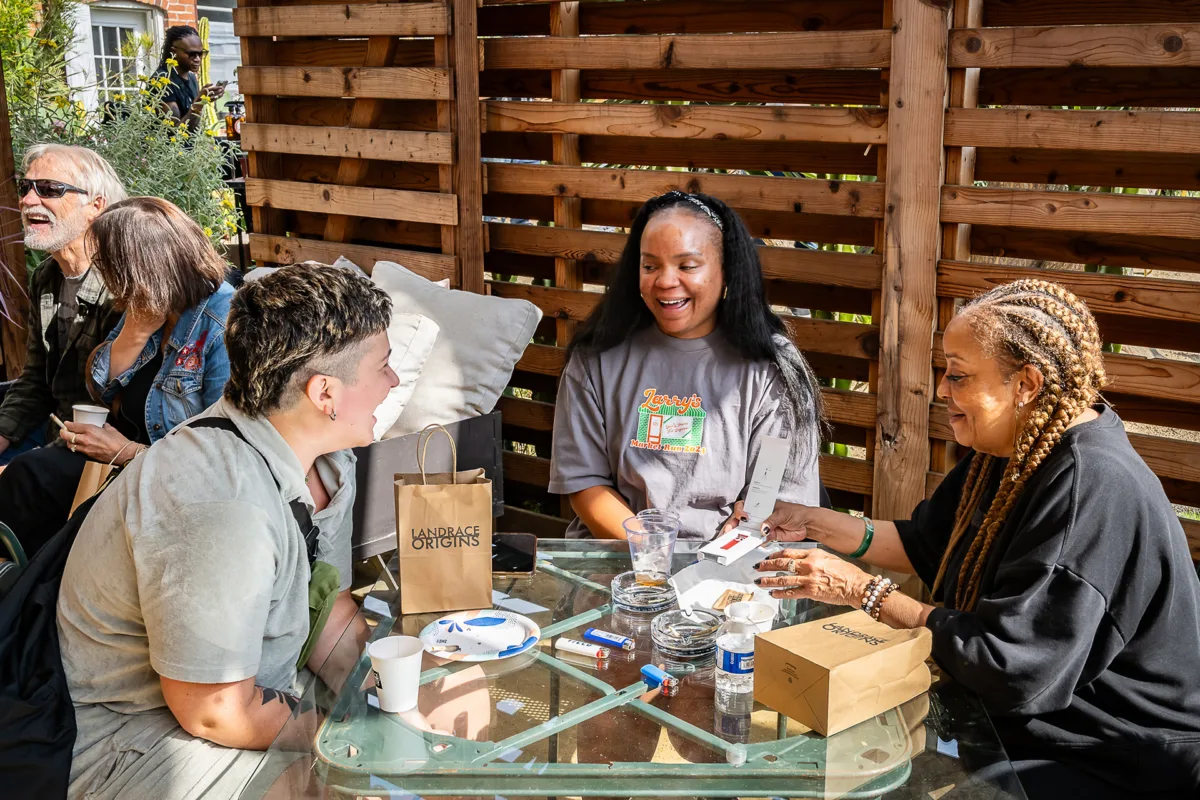
The full flower of Landrace’s concept can be found in their High On Flavor event series, which takes place in a private outdoor event space in Piedmont, featuring espresso service, tea (Landrace Origins offerings have expanded to include tea as well) and cannabis samplings, plus refreshments and a live DJ. Cannabis isn’t sold there, per local regulations, but admission includes free gifts of cannabis you can enjoy while learning about the different beans and trying different brews. A budtender helps describe the notes, terpenes, flavors, and how they mesh with the different coffees and teas. Attendees mix and mingle, discussing their pairings. The simplicity has again proved to be the ticket—what started as a 40-50 person event grew into a regularly sold out affair of 100 people by the end of 2023.
“I knew it was catching on when I started seeing people I don’t know—consumers, not industry people,” says Senter. “People would talk about how there is no place to go to just be with other people and smoke a joint. And enjoy a really great cup of coffee.”
Beyond the challenges of restrictive regulations, a huge obstacle in destigmatizing cannabis is the task of rewiring the masses to look at it as a plant rather than a dangerous drug. Similarly, many coffee drinkers see the rising cost of a latte and assume those dollars make it back to farmers pictured on the walls of the cafe. In reality, both of these plants have become distanced from their roots in ways that benefit the most destructive, extractive capitalist interests. Landrace Origins is trying to connect those dots for people who love cannabis and coffee, fostering much needed awareness of the people and processes that make these satisfying highs possible.
Lauren Yoshiko is the author of the newsletter Sticky Bits and a leading cannabis journalist based in Portland, Oregon. Lauren Yoshiko’s work has appeared in Broccoli, Condé Nast Traveler, Thrillist, Eater, Forbes, and Rolling Stone. This is Lauren Yoshiko’s first feature for Sprudge.
Photos courtesy Mike Rosati.











